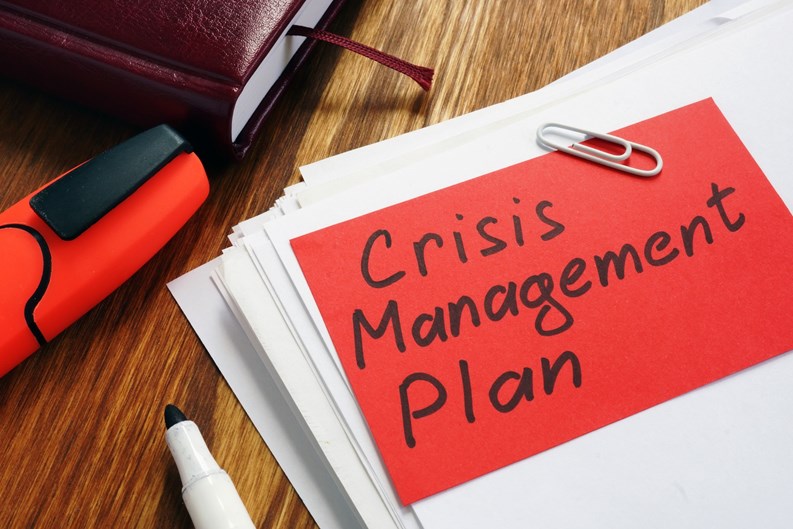The day-to-day life of a property manager—while not quite as predictable as that of, say, an accountant—does revolve around certain cyclical tasks, like building inspections, staff meetings, and keeping boards informed of what is going on with various projects in their buildings. That’s not to say that there isn’t an occasional emergency, of course; a boiler fails, a visitor slips and falls, a vendor doesn’t deliver. And while any good manager takes these challenges in stride, there’s little that could have prepared managers for what they would face with the arrival of COVID-19.
The novel coronavirus is called ‘novel’ for a reason. It’s a newly emerged public health threat that you can’t see, smell, taste, or feel—at least until you’ve contracted it. It’s there, everywhere, and at the beginning of the pandemic, no one knew exactly where. It created paralyzing fear for both our leaders and individuals, particularly in New York City, its first epicenter. In a hyper-urban environment where people were packed in like sardines to begin with, physical distance between loved ones, neighbors, and strangers went from being a luxury to being a requirement. The many nonverbal cues we receive and interpret from facial expressions disappeared behind featureless masks; no more smiles from the porter when he came to deliver a package to your apartment.
The mental and emotional stress foisted upon literally millions of people in what many would agree was often already a stressful environment has frayed nerves, shortened tempers, and in some cases ignited conflict between neighbors and between residents of co-ops and condos, their boards, and their management agents and staff.
The stress has extended to the smallest of things. One manager reported that when the board of a building she manages decided to ban domestic helpers from entering the property, she received a call from an irate shareholder. The shareholder told her in no uncertain terms that she “hadn’t picked up a vacuum in 50 years—and wasn’t about to start now!” Another reported that he had to set up support groups for the staff in his building because the stress of traveling to and from the building and the nervous behavior of the residents were causing pervasive, chronic feelings of fear and despair.
The truth is that never before had property managers and their client communities faced a crisis of this type, presenting itself in this way. It seemed part science fiction, part war story—except the enemy wasn’t an alien invasion (at least, not exactly) or a foreign occupying army. It was an invisible, incurable microbe that often brought suffering, and could easily bring death. The zombie apocalypse had arrived.
Pandemonium
“I’m no longer managing an apartment building,” says Daniel Wollman, CEO of Gumley Haft, a residential property management firm located in New York City. “Instead, I’m managing a pandemic. Once it hit, construction projects ceased. We closed service entrances. We required new elevator procedures: one family or two individuals in the cab at a time. We severely limited access for deliveries, guests, domestic help, etc. It was a stark contrast to day-to-day functions before the pandemic when so much was happening all the time—deliveries, renovations, etc. Building ops severely changed.”
What Wollman and his staff did in their offices and with their time when not on site at client properties changed, too. “We needed PPE, constantly,” he says. “It was hard to get initially. We had to convert our office conference room into a storage area. We also had to send many of our office employees to work from home, which took time to get used to as well. In addition, we needed to make sure that everyone on our various building staffs was as safe as possible. What if someone tested positive, resident or staff? We had to develop a procedure.”
Scott Wolf, a managing partner at Brigs Management in New England, says, “For us it’s been about managing expectations of the clients for vendors, workers, residents, etc. You can’t get a building permit in Massachusetts right now. Processes take much longer for everything. You’re not getting something fixed quickly. Vendors and suppliers are managing the same problem. There’s a protocol for in-house maintenance with masks, shoe booties, other PPE, and questions to be answered every time someone enters a unit. Time management has become difficult. Everyone is home, so they’re calling me more.” He also explains that the cadence of his day has changed. “Board meetings used to be once a month at night, now they’re during the day, and they are occurring sometimes two or three times a month. We are cramming much more into a day as a result of Zoom.”
Jim Stoller, president and CEO of The Building Group located in Chicago, reports a similar experience. “This is unprecedented in its effects,” he says of the pandemic. “From staffing, to money, to psychology. You would learn something about the virus, and then two days later it’s updated and changed. These dangerous unknowns required management to be on full alert all the time. A lot of what we do in management is managing people. Building systems are easy—but all of a sudden, we are dealing with emotional issues, health issues, with both residents and staff being affected. Many residents have felt that staff safety is not as important as their own. That was shocking for me. One person said they want someone wiping the building’s front door handle every time someone touches it. In some properties, residents wanted the spa and pool open, with staff to clean it constantly.” Of course, that type of request became untenable once state and local authorities ordered these facilities closed.
“We stopped all construction and remodeling,” adds Stoller. “Service providers and building staff were under a lot of stress, both personally and professionally. Many ride public transportation to get to their jobs, which is scary, and then when they got to work were expected to do their jobs as if nothing had changed. It should be stated that most employees did an outstanding job despite the circumstances.”
“In Illinois we are considered an essential business,” says Marsha Nolan, director of associations for Advocate Property Management, also located in Chicago. “We’ve been able to continue our day-to-day operations, though the entire company did work from home from mid-March through May. We had the proper technology in place to make that possible. I did hear from several vendors early on that we were the only company that continued to pay our invoices on time. Although we do have COVID protocols in place, we are conducting business as usual and have been throughout the pandemic.”
National Protests Complicate Things
In addition to the pandemic, nationwide protests spread in the late spring over the police killing of George Floyd in Minneapolis. This added another layer of complexity and concern to the existing crisis. “We had looting on Madison Avenue,” says Wollman, “and we had anticipation with respect to the [presidential] election. We told our buildings we would double up staff in the lobby and lock up the front doors. We couldn’t put out the garbage till the morning due to the protests in some neighborhoods, and we needed extra fire extinguishers as well as other items during the protests. Some residents were nervous and even asked for armed guards. I didn’t think we needed anyone to shoot someone, and I said so; it was not always well taken. Our buildings were locked. What was the armed guard going to do? In the end, we didn’t hire guards, but did have them on standby. Happily, it all worked out.”
Expanding Skills
Managers frequently found themselves in uncharted territory during the first months of the pandemic, adrift in rough seas without a map. “The majority of issues we dealt with were people’s emotions,” says Stoller. “A friend of mine who is a psychiatrist told me this is very common. People are under much greater stress—especially those who already had problems. We did a lot of Zoom calls with our building staff and maintenance people to keep them updated on protocols and changes in policies, as well as how to deal with people. And we did it so they could give each other emotional support. Every day became a support group for all types of staff.”
“Good customer service skills are very important right now,” says Nolan. “Let’s face it, 2020 has been a whirlwind of a year, with many people working from home, many people jobless, children learning for the first time via Zoom and other online platforms...it’s changed the lives of many. Our routines have been disturbed, which makes people uncomfortable, irritable at times, and fearful for the future. We have to understand that when clients might have more of an edgy tone to their emails or phone calls, it’s not necessarily us, but just the current state of the country.” Focusing on solid customer service, mutual patience, and de-escalating tense exchanges when they occur can go a long way toward reducing stress for everyone on all sides of the equation.
Wollman says he’s learned to value and implement patience and collaboration, and uses an apt metaphor: “We had to adapt to an ever-changing wheel without reinventing it every day. And it wasn’t my wheel, the wheel I built over my career. It was the Governor’s wheel, or Department of Health’s wheel. But we had to keep everyone safe—employees, staff, and residents. That’s my responsibility as I view it. So, I have to figure out how to do that—how do we do that.”
Wolf observes that pandemic-related burnout has become a reality in his industry. He reports that some managers are leaving not only their jobs, but the real estate business altogether—and those who are staying in are feeling the strain, too. “I’m more therapist and psychologist than manager right now,” he says. His company has instituted all types of special training as needed, from cleaning requirements to support group-type conferences. He even brings in attorneys to explain the ever-changing landscape of pandemic regulations to his property managers so they can stay abreast of new requirements, restrictions, and best practices—and hopefully feel less stressed about implementing them all in their client communities.
As the very first doses of the desperately awaited vaccine are distributed across the country, we’re finally seeing a light at the end of a very long, dark tunnel. But even with the ray of hope that vaccinations offer, the pandemic remains ongoing—and continues to impact the way managers manage their properties, their staffs, and themselves. Time will tell how soon—if ever—we’ll be able to return to some place of normalcy, but until then, multifamily managers will keep soldiering on, supporting their staff and client communities as we all do our best to hold it together.
A J Sidransky is a staff writer/reporter for New England Condominium, and a published novelist.







Comments
Leave a Comment